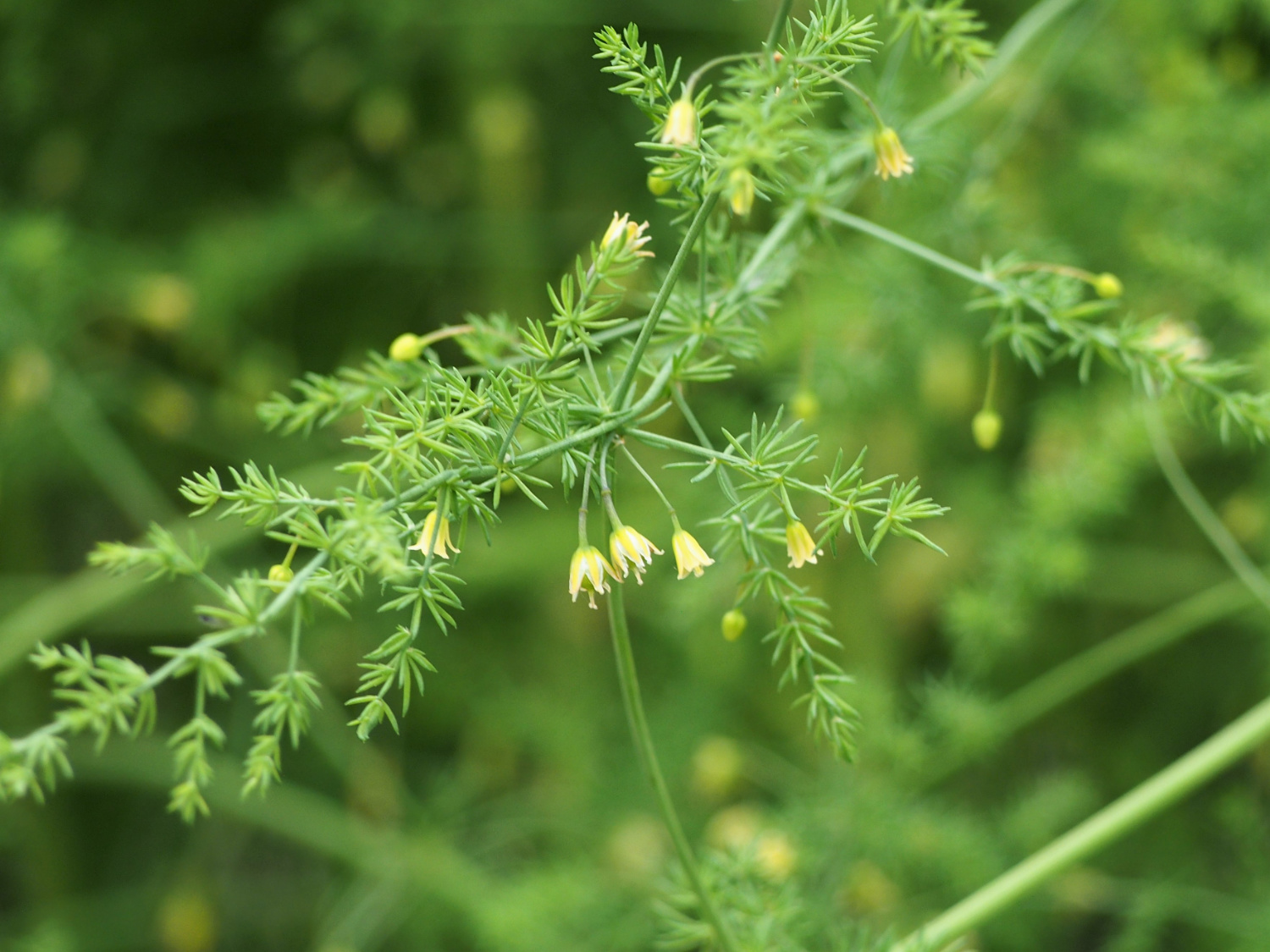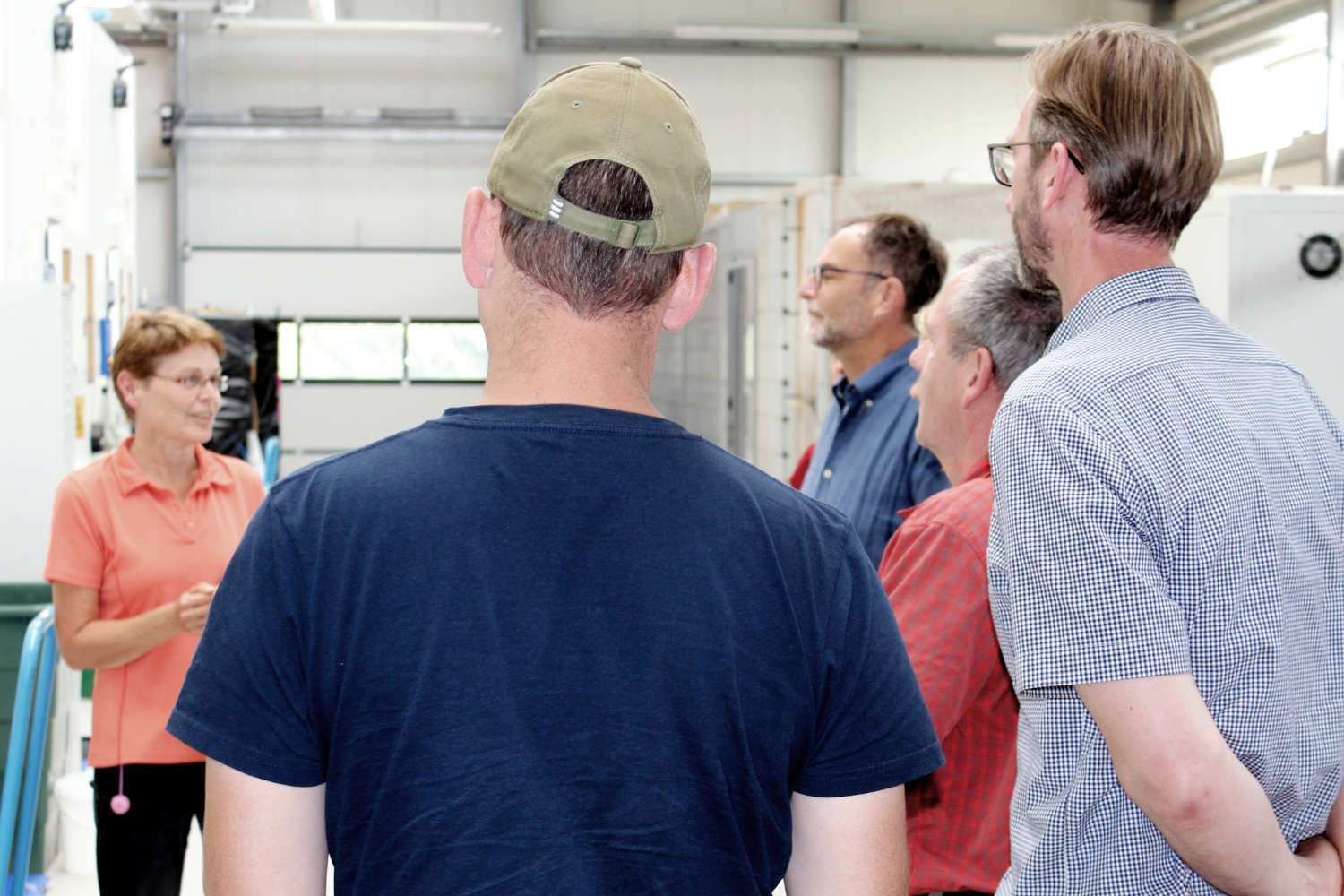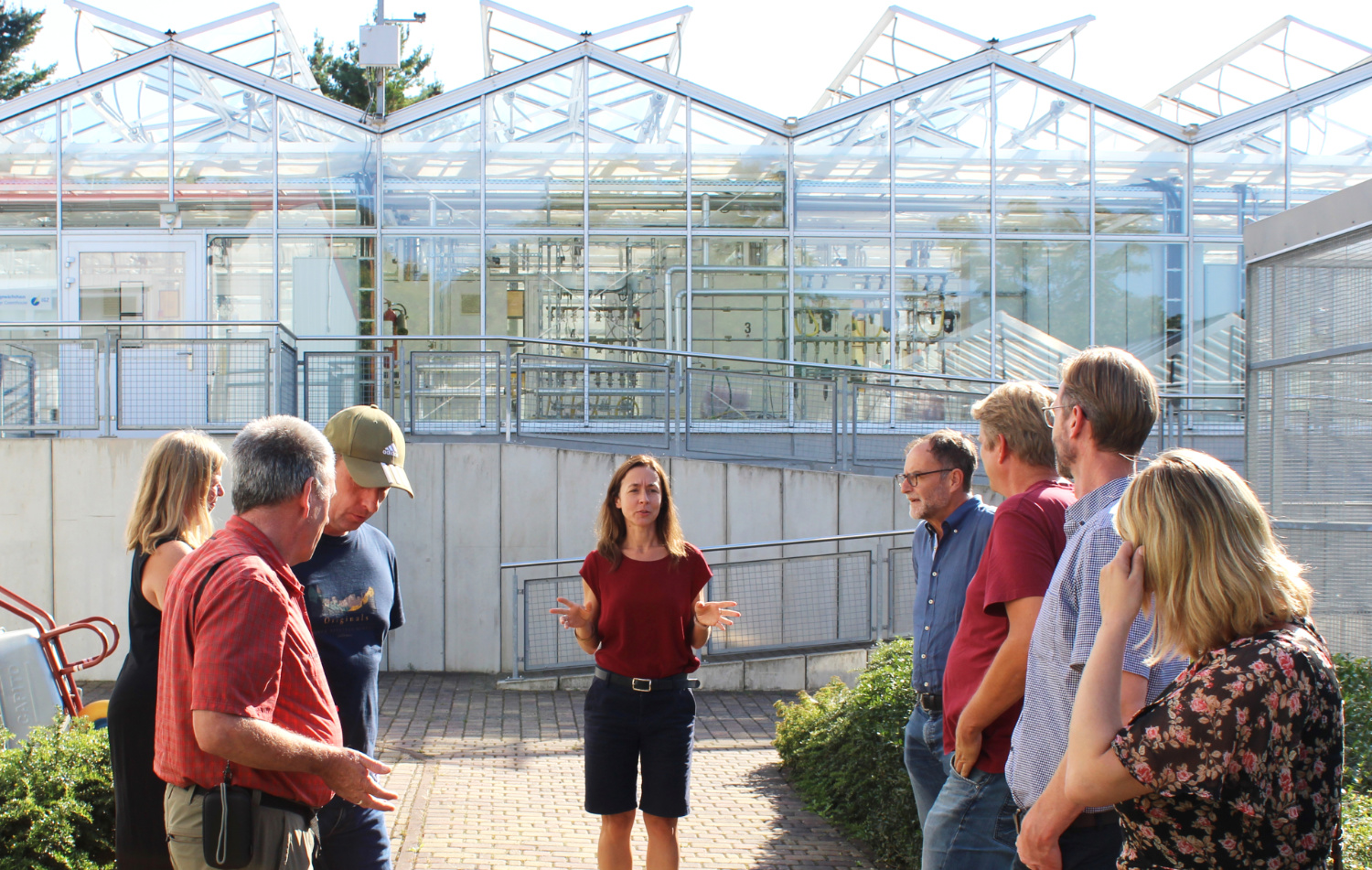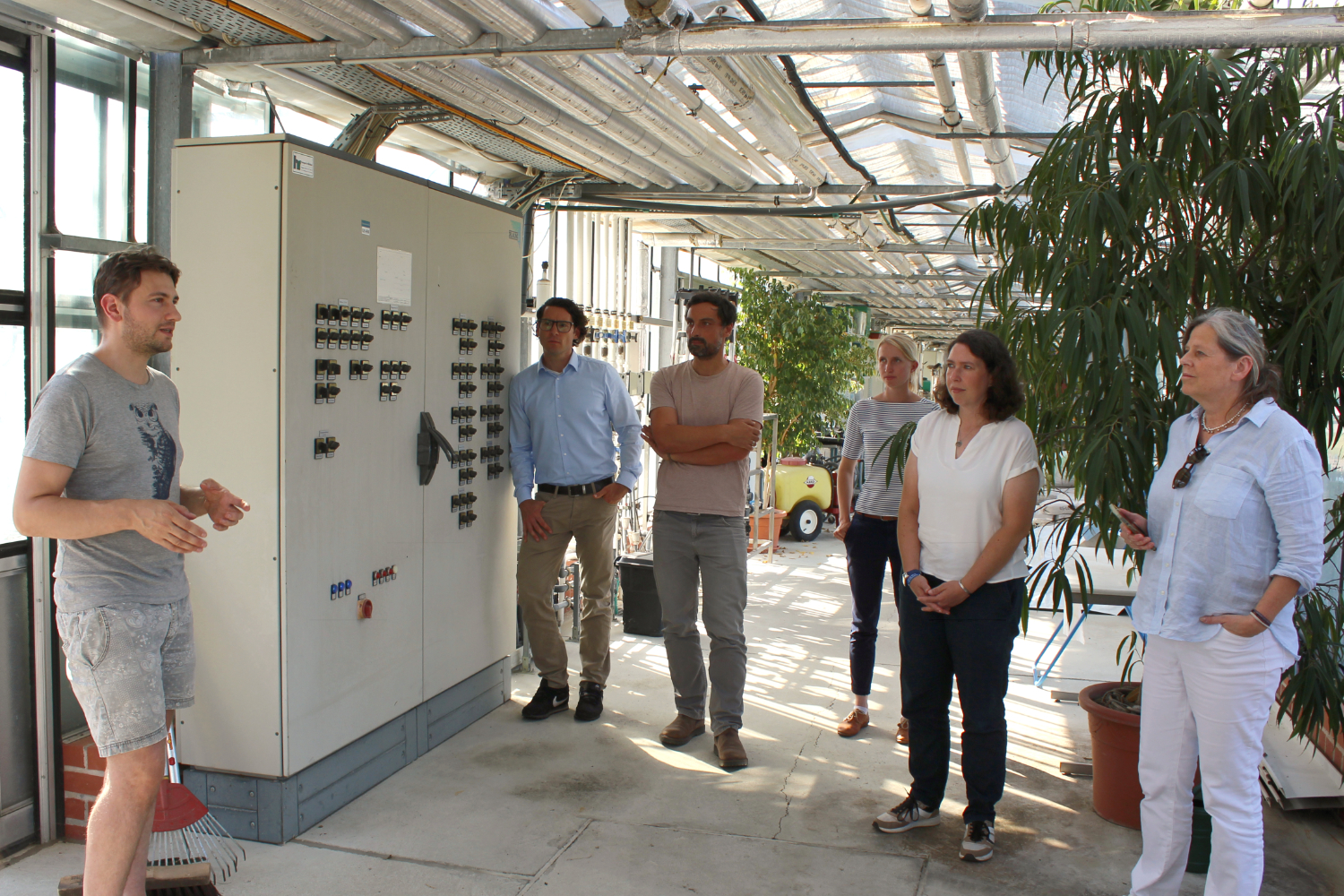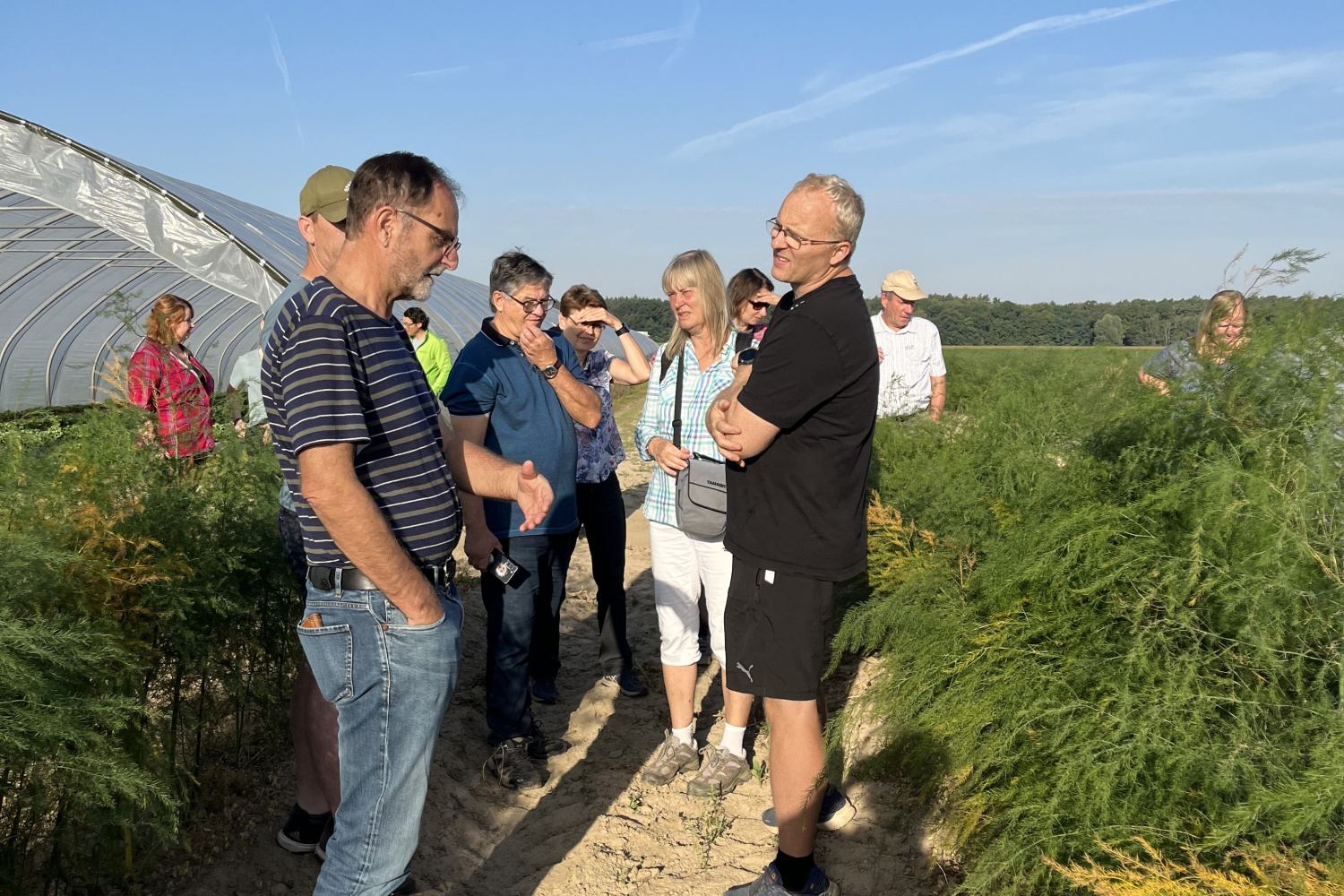Experts discuss current developments and future prospects of asparagus cultivation
80th Meeting of the Asparagus Working Group of the German Vegetable Crops Association (Bundesfachgruppe Gemüsebau) at IGZ
After the opening by chairman Joachim Ziegler (DLR Rhineland-Palatinate) and a welcome by IGZ scientific director Nicole van Dam, Laura Lafuente reported as managing director from the federal specialist group for vegetable cultivation (Bundesfachgruppe Gemüsebau). This was followed by reports from the regions on the asparagus season. Despite the delayed start of the season due to cold weather, the balance was good due to sufficient rainfall. Brandenburg in particular benefited from this.
On the focal topic of "Mechanical Harvesting", Jan Gräfe (IGZ) presented research results from modeling for full mechanical harvesting of vegetables, which were complemented by contributions on selective and non-selective harvesting machines from the North Rhine-Westphalia Chamber of Agriculture and the Bavarian State Institute for Viticulture and Horticulture (LWG). On the subject of plant protection, there were contributions from researchers Janine König and Thomas Nothnagel (Julius Kühn Institute). Marit Gillmeister (Hochschule Anhalt University of Applied Sciences) presented "KombiAktiv" , a collaboration project with IGZ on secondary plant compounds and symbiotic root microoganisms to combat fungal infestation in asparagus.
Subsequently, the expected effects of the stricter EU directives on the use of plant protection agents in asparagus cultivation were discussed. It can be assumed that growers will face increased problems in protecting their crops from pests such as the asparagus fly or fungal pathogens in the future.
Before results of the Lower Saxony asparagus trials and on test plantings of new asparagus varieties as a supplement to classical variety trials were presented, the participants of the meeting were given a guided tour of the institute's premises, during which selected projects were presented.
Finally, the long-time chairman Ziegler was bid farewell into retirement, he is succeeded by Nils Kraushaar (Lower Saxony Chamber of Agriculture) who will chair the meeting in 2024 in Freiburg.
